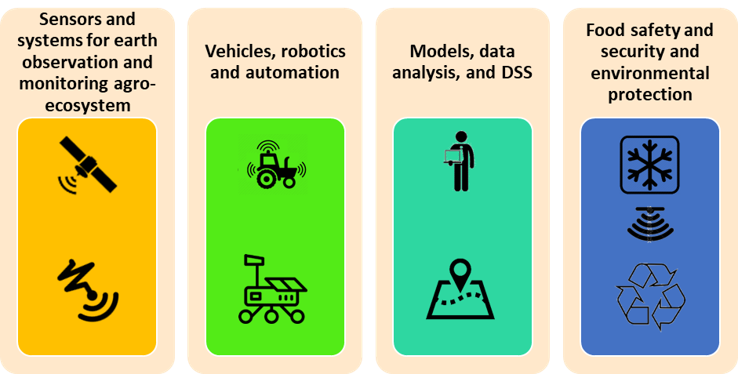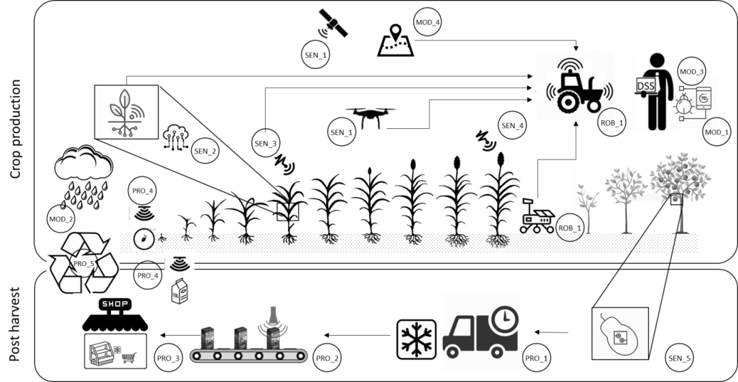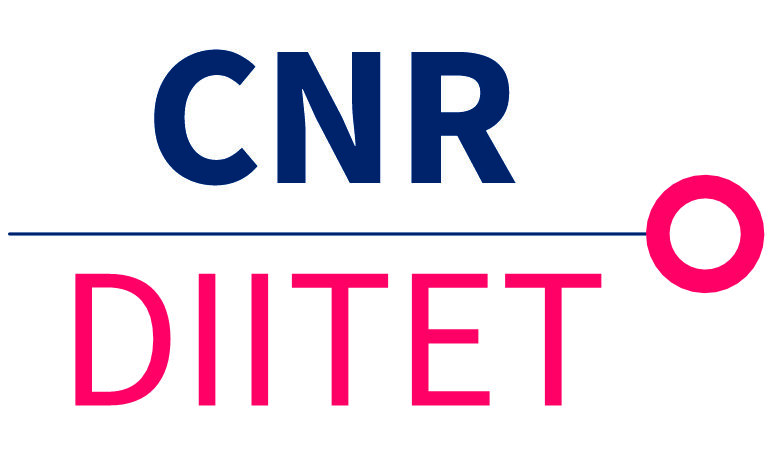Objective: To exploit technologies to contribute to all the value chain of the agro-sector from production to consumption including the overall reduction of waste and its recover to face increasing worldwide food and feed demand, market globalization and food price volatility, and the needs for more sustainable farming systems in a changing climate scenario. In this framework sensors, GNSS, automation and robotics and ICT solutions are converging into the so called “smart farming”, which encompasses precision farming (PF) and food safety technologies (handling, preparation, and storage of food).
Approach: Precision farming is aimed at site specific crop management in order to “produce more with less” by identifying and handling inter and intra-field variability in crops and reducing fertilizer and pesticides application, optimizing the timing, location and quantity.
Technologies extend their application also to the post-harvest sector contributing to food quality assessment and to food safety implementation. Furthermore the PA includes exploiting of autonomous or remoted operated machinery and optimization of the interaction of the operators and the implementation of healthier and safer working conditions.
Scientific Impact/Results: Sensing technologies are addressed at collecting spatio-temporal information about soil condition, water and nutrient availability and demand, crop status and pests dynamics to reduce the environmental footprint of agriculture. Autonomous vehicles (ground and aerial) are platforms for crop and plant observation and inspection and to perform precision farming tasks. Product and packaging non destructive inspection in the food supply chain and energy efficiency and reduced environmental impact in refrigeration technologies are the main results attained.


Download:


